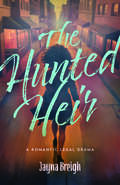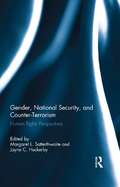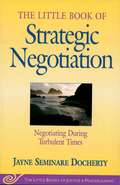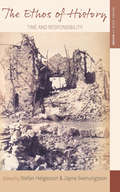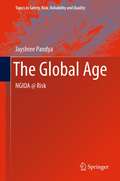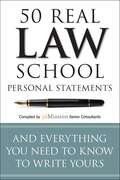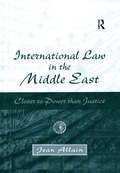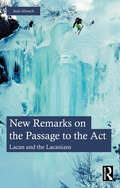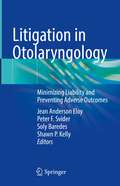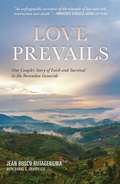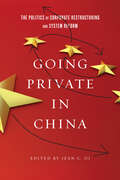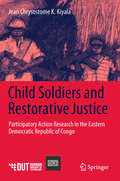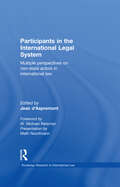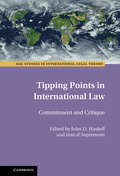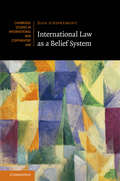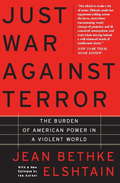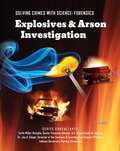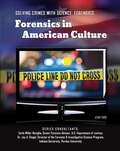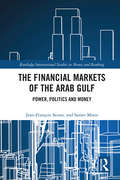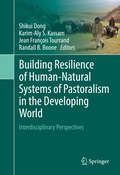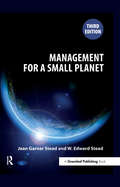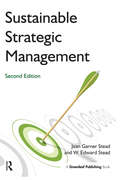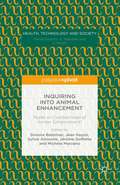- Table View
- List View
The Hunted Heir: A Romantic Legal Drama
by Jayna BreighAfter a tragic loss, private investigator Nona Taylor swore off romantic entanglements and distanced herself from the world. Once a year, on New Year's Eve, she attends church to beg God for forgiveness, haunted by the guilt of driving her twin sister to her death. Attorney DeMarcus Johnson is determined to climb the ladder to partnership by winning high-profile cases at his Los Angeles law firm, harnessing his ADHD hyperfocus to excel. He's everything Nona knows to steer clear of--an overconfident ex-jock willing to do anything for success. Their worlds collide when Nona's pastor receives a mysterious letter claiming he's the sole heir to a substantial estate. Desperate for answers, Nona infiltrates a lavish charity ball, only to be found out by a suspicious stranger--so she latches onto DeMarcus and concocts a fib about being his fiancée. Now bound by a false engagement, the pair reluctantly join forces to discover the truth about the inheritance. But when an unseen enemy strikes, they realize the stakes are higher than they thought. Can Nona and DeMarcus overcome their differences to keep the pastor safe, secure DeMarcus's partnership, and preserve a future for themselves?
Gender, National Security, and Counter-Terrorism: Human rights perspectives (Routledge Research in Terrorism and the Law)
by Margaret L. Satterthwaite Jayne C. HuckerbyIn the name of fighting terrorism, countries have been invaded; wars have been waged; people have been detained, rendered and tortured; and campaigns for "hearts and minds" have been unleashed. Human rights analyses of the counter-terrorism measures implemented in the aftermath of 11 September 2001 have assumed that men suffer the most—both numerically and in terms of the nature of rights violations endured. This assumption has obscured the ways that women, men, and sexual minorities experience counter-terrorism. By integrating gender into a human rights analysis of counter-terrorism—and human rights into a gendered analysis of counter-terrorism—this volume aims to reverse this trend. Through this variegated human rights lens, the authors in this volume identify the spectrum and nature of rights violations arising in the context of gendered counter-terrorism and national security practices. Introduced with a foreword by Martin Scheinin, former UN Special Rapporteur on Human Rights and Counter-Terrorism, the volume examines a wide range of gendered impacts of counter-terrorism measures that have not been theorized in the leading texts on terrorism, counter-terrorism, national security, and human rights. Gender, National Security and Counter-Terrorism will be of particular interest to scholars and students in the disciplines of Law, Security Studies and Gender Studies.
Little Book of Strategic Negotiation: Negotiating During Turbulent Times
by Jayne DochertyMost books on negotiation assume that the negotiators are in a stable settintg. But what about those far thornier times when negotiation needs to happen while other fundamental factors are in uproarious change- deciding which parent will have custody of their child while a divorce is underway; bargaining between workers and management during the course of a merger and downsizing; or establishing a new government as a civil war winds down. From Docherty's experiences in environmental/public policy negotiations and community development work. A title in The Little Books of Justice and Peacebuilding Series.
The Ethos of History: Time and Responsibility (Making Sense of History #34)
by Jayne Svenungsson Stefan HelgessonAt a time when rapidly evolving technologies, political turmoil, and the tensions inherent in multiculturalism and globalization are reshaping historical consciousness, what is the proper role for historians and their work? By way of an answer, the contributors to this volume offer up an illuminating collective meditation on the idea of ethos and its relevance for historical practice. These intellectually adventurous essays demonstrate how ethos—a term evoking a society’s “fundamental character” as well as an ethical appeal to knowledge and commitment—can serve as a conceptual lodestar for history today, not only as a narrative, but as a form of consciousness and an ethical-political orientation.
The Global Age: NGIOA @ Risk
by Jayshree PandyaDr. Jayshree Pandya, founder of Risk Group LLC (http://www.riskgroupllc.com), is ahead of the curve in addressing the changing global fundamentals of the emerging Global Age. Global Age, and its changing global fundamentals has brought complex, chaotic, and turbulent times for every nation--where failures at all levels have come to become self-evident, repetitive, destructive, and potentially hopeless in nature and uncertainty. Nations are caught off guard. From what is visible across nations today, the promise of progress and prosperity for all nations does not seem to have materialized in a Global Age. Instead of progress and prosperity, what is visible today is crisis and catastrophe that is overpowering and overwhelming the capability of most nations to meet their promise of progress and prosperity. Nations are in crisis. This introductory book Global Age: NGIOA @ Risk addresses the global shifts and the changing global fundamentals of Global Age, to lay out much needed foundation of an integrated NGIOA risk governance framework for the coming tomorrow. This book will make a convincing case for the far-reaching need and understanding of global risk concepts, global risk fundamentals, and risk centric integrated NGIOA governance. The integrated NGIOA risk governance approach proposed and discussed in this initiative is rational, practical, and feasible. It will help create a dynamic, vibrant, and sustainable NGIOA economy of a Global Age. This initiative is a first step towards that.
50 Real Law School Personal Statements: And Everything You Need to Know to Write Yours
by Jdmission Senior ConsultantsProven strategies, practice, and review to ace the SAT Subject Test Biology E/M Getting into a top college has never been more difficult. Students need to distinguish themselves from the crowd, and scoring well on a SAT Subject Test gives students a competitive edge. Kaplan's SAT Subject Test: Biology E/M is the most up-to-date guide on the market with complete coverage of both the content review and strategies students need for success on test day.Kaplan's SAT Subject Test: Biology E/M features:* A full-length diagnostic test* 2 full-length practice tests* Focused chapter summaries, highlights, and quizzes* Detailed answer explanations* Proven score-raising strategies* End-of-chapter quizzesKaplan is serious about raising students' scores--we guarantee students will get a higher score.
International Law in the Middle East: Closer to Power than Justice
by Jean AllainExamining international law through the lens of the Middle East, this insightful study demonstrates the qualitatively different manner in which international law is applied in this region of the world. Law is intended to produce a just society, but as it is ultimately a social construct that has travelled through a political process, it cannot be divorced from its relationship to power. The study demonstrates that this understanding shapes the notion, strongly held in the Middle East, that law is little more than a tool of the powerful, used for coercion and oppression. The author considers a number of formative events to demonstrate how the Middle East has become an underclass of the international system wherein law is applied and interpreted selectively, used coercively and, in noticeable situations, simply disregarded. International Law in the Middle East brings various narratives of history to the fore to create a wider arena in which international law can be considered and critiqued.
New Remarks on the Passage to the Act: Lacan and the Lacanians
by Jean AllouchNew Remarks on the Passage to the Act considers what happens when psychoanalysis and the social sciences are called on to help modern societies overwhelmed by unexplained violence.Jean Allouch examines key events – the crimes of the Papin sisters, Lacan’s case of Aimée and the murder of Hélène Rytmann by Louis Althusser – and unpacks the concept of the "passage to the act". The book assesses these classic cases, resorting to contemporaneous studies and literature, particularly discussing Marguerite Duras’ novel L’Amante Anglaise. The book also considers modern acts of terrorism.New Remarks on the Passage to the Act will be of great interest to clinicians, academics and scholars of psychoanalysis, Lacanian studies, sociology, cultural studies and philosophy, and to Lacanian analysts in practice and in training.
Litigation in Otolaryngology: Minimizing Liability and Preventing Adverse Outcomes
by Peter F. Svider Jean Anderson Eloy Soly Baredes Shawn P. KellyThis text, edited by experienced academic and private otolaryngologists at different points in their careers, as well as an attorney, reviews the current literature related to otolaryngology malpractice litigation, and discusses strategies to decrease liability and enhance patient safety. It examines the most recent trial decisions in otolaryngology and determines which procedures are most commonly litigated in the current medicolegal environment. The text provides otolaryngologists with tips and pearls on how to prevent malpractice litigation, and discusses key actions to take when faced with malpractice litigation. Strategies for minimizing liability as well as the factors brought up in malpractice litigation related to otolaryngology – head and neck surgery are also discussed.Litigation In Otolaryngology will be a useful resource for all involved in the care of otolaryngologic patients (physicians, nurse practitioners, physician assistants, etc.), those concerned with the legal aspect of such care (including malpractice attorneys), and healthcare policy makers.
Just War Against Terror: The Burden of American Power in a Violent World
by Jean Bethke ElshtainAnalysis of the demands arising from the terror of 9-11.
Love Prevails: One Couple's Story of Faith and Survival in the Rwandan Genocide
by Jean Bosco RutagengwaTwenty-five years ago in April 1994, a savage campaign of genocide was unleashed against the Tutsis of Rwanda. In the space of one hundred days, one million people were left dead. This personal narrative tells the story of two survivors--Jean Bosco and his fiancée Christine. While most of their family members perished, they found refuge in what later become famous as the “Hotel Rwanda.” Their story of survival is at once a love story and a harrowing inside look at what happens when a country is overrun by evil. But it is also a story of faith--an effort to find God in the midst of horror--and of the subsequent struggle to find meaning, healing, and reconciliation.
Going Private in China: The Politics of Corporate Restructuring and System Reform
by Jean C. OiAs the Chinese Communist Party (CCP) set about reforming its centrally planned economy, it faced the thorny policy question of how to reform its state-owned enterprises (SOEs). Should it support a shift from public to private ownership of the means of production? Such a shift would challenge not only the CCP's socialist ideology but also its very legitimacy. Mixing the business of corporate restructuring with the politics of socialism presented nothing short of a policy nightmare. With policy-relevant acuity, the contributors to this wide-ranging volume address the questions about reform programs that have plagued China—and East Asia more broadly—since the 1990s. While China, Japan, and South Korea have all been criticized for implementing reform too slowly or too selectively, this volume delves into the broader contexts underlying certain institutional decisions. The book seeks to show that seemingly different political economies actually share surprising similarities, and problems. While Going Private in China sheds new light on China's corporate restructuring, it also offers new perspectives on how we think about the process of institutional change.
Child Soldiers and Restorative Justice: Participatory Action Research in the Eastern Democratic Republic of Congo
by Jean Chrysostome KiyalaThis book investigates how, while children used as soldiers are primarily perceived as victims of offences against international law, they also commit war atrocities. In the aftermath of armed conflict, the mainstream justice system targets warlords internationally, armed groups and militias’ commanders who abduct and enrol children as combatants, leaving child perpetrators not being held accountable for their alleged gross human rights violations. Attempts to prosecute child soldiers through the mainstream justice system have resulted in child rights abuses. Where no accountability measures have been taken, demobilised young soldiers have experienced rejection, and eventually, some have returned to soldiering. This research provides evidence of the potential of restorative justice peacemaking circles and locally-based jurisprudence – specifically the Baraza - to hold former child soldiers accountable and facilitate their reintegration into society.
Participants in the International Legal System: Multiple Perspectives on Non-State Actors in International Law (Routledge Research in International Law)
by Jean D'AspremontThe international legal system has weathered sweeping changes over the last decade as new participants have emerged. International law-making and law-enforcement processes have become increasingly multi-layered with unprecedented numbers of non-State actors, including individuals, insurgents, multinational corporations and even terrorist groups, being involved. This growth in the importance of non-State actors at the law-making and law-enforcement levels has generated a lot of new scholarly studies on the topic. However, while it remains uncontested that non-State actors are now playing an important role on the international plane, albeit in very different ways, international legal scholarship has remained riddled by controversy regarding the status of these new actors in international law. This collection features contributions by renowned scholars, each of whom focuses on a particular theory or tradition of international law, a region, an institutional regime or a particular subject-matter, and considers how that perspective impacts on our understanding of the role and status of non-State actors. The book takes a critical approach as it seeks to gauge the extent to which each conception and understanding of international law is instrumental in the perception of non-State actors. In doing so the volume provides a wide panorama of all the contemporary legal issues arising in connection with the growing role of non-state actors in international-law making and international law-enforcement processes.
Tipping Points in International Law: Commitment and Critique (ASIL Studies in International Legal Theory)
by John D. Haskell Jean D’AspremontAddressing some of the most perilous, controversial issues in international law and governance, this volume brings together legal scholars from diverse geographic, personal and scholarly perspectives. They reflect on the pervasive feeling of crisis in the world today and share their views on the possibilities and limits of the international legal architecture and its expert communities in shaping the world of tomorrow. What exactly is this feeling that the contemporary international legal architecture is at a tipping point? What do these possible risks expose about the fragility and limits of our current conceptual and institutional order? What commitments drive our hopes and anxieties? Authors explore these questions across a wide range of possible tipping points and offer readers a unique snapshot of the lived experience of what it means to be an expert engaged right now in international law and governance. Each chapter covers both theory and practice in analysing a current problem.
International Law as a Belief System (Cambridge Studies in International and Comparative Law #133)
by Jean D’aspremontInternational Law as a Belief System considers how we construct international legal discourses and the self-referentiality at the centre of all legal arguments about international law. It explores how the fundamental doctrines (e.g. sources, responsibility, statehood, personality, interpretation and jus cogens etc.) constrain legal reasoning by inventing their own origin and dictating the nature of their functioning. In this innovative work, d'Aspremont argues that these processes constitute the mark of a belief system. This book invites international lawyers to temporarily suspend some of their understandings about the fundamental doctrines they adhere to in their professional activities. It aims to provide readers with new tools to reinvent the thinking about international law and combines theory and practice to offer insights that are valuable for both theorists and practitioners. Combines theoretical debates with doctrinal questions and offers insights that are valuable for both theorists and practitioners. Sheds new light on the self-referential foundations of the main doctrines of international law. Presents a first-time, fully articulated claim that international law works as a belief system.
Just War Against Terror: The Burden Of American Power In A Violent World
by Jean ElshtainJean Bethke Elshtain advocates "just war" in times of crisis and mounts a reasoned attack against the anti-war contingent in American intellectual life. Advocating an ethic of responsibility, Elshtain forces us to ask tough questions not only about the nature of terrorism, but about ourselves. This paperback edition features a new introduction by the author, addressing the Iraq war and other events in the Middle East.
Bad
by Jean FerrisIn an attempt to please her friends, sixteen-year-old Dallas goes along with their plan to rob a convenience store and when her father refuses to allow her to come home, she is sentenced to six months in the Girls' Rehabilitation Center.
Explosives & Arson Investigation (Solving Crimes With Science: Forensics)
by Jean FordAn uncanny calm settles on the scene. The blaze is out. A soggy, sooty mess remains. Most of us wouldn't have a clue where to begin, yet fire and explosion investigators know precisely where and how to dig in. Other books in this series show that documents, fingerprints, a stray hair, fibers, bullets, tool marks, blood spatter, SNA, cigarette butts, insects, or even a simple candy wrapper can provide clinching proof in many legal cases--but fire and bombs destroy these bits of evidence. What clues can forensic scientists possibly glean from rubble and ash? Using real-life stories as examples, Explosives & Arson Investigation explores the world of fire--and bomb-scene investigation. From first-on-the-scene priorities to collecting and documenting evidence to lab analysis and its procedures, then finally assessing motive, this book reveals basic fire characteristics, what investigators look for, how they process what they find, the meaning of specific clues, and common motives--all while highlighting various forensic careers.
Forensics in American Culture: Obsessed With Crime (Solving Crimes With Science: Forensics)
by Jean FordWhy are programs such as CSI, Law & Order, and Cold Case so popular? Because our culture is fascinated with crime--and these television shows reveal investigators' procedures and secrets. With so many forensic-based television programs, it might seem that North America's morbid curiosity is a new phenomenon. The truth is, however, that humanity have always been fascinated by that which also frightens them. What's more, humans are attracted to puzzles--and forensic science offers opportunities to solve mysteries while at the same time "catching the bad guys." Modern media has only magnified the tendencies of previous generations. This book takes a look at the ways this fascination with crime shapes modern news media, television programming, movies, and the Internet. It also provides information on the real-life opportunities for forensic careers. Forensic science is more than just a cultural obsession--it's a fast-growing professional field. Forensics in American Culture will reveal this field's intriguing mixture of science, mystery, excitement, and justice.
The Financial Markets of the Arab Gulf: Power, Politics and Money (Routledge International Studies in Money and Banking)
by Jean Francois Seznec Samer MosisFinancial markets across the Arabian Peninsula have gone from being small, quasi-medieval structures in the 1960s to large world-class groupings of financial institutions. This evolution has been fueled by vast increases in income from oil and natural gas. The Financial Markets of the Arab Gulf presents and analyzes the banks, stock markets, investment companies, money changers and sovereign wealth funds that have grown from this oil wealth and how this income has acted as a buffer between Gulf society at large and the newfound cash reserves of Gulf Cooperation Council states (Saudi Arabia, the United Arab Emirates, Qatar, Kuwait, Oman and Bahrain) over the last fifty years. By assessing the development of institutions like the Abu Dhabi Investment Authority, the Saudi Arabian Monetary Authority, the Public Investment Fund and the National Bank of Kuwait, The Financial Markets of the Arab Gulf evaluates the growth of the markets and provides a detailed, critical, snapshot of the current form and function of the Gulf’s financial markets. It argues that the markets have been controlled by various state institutions for socio-political reasons. In particular, the Saudi state has used its sophisticated regulatory regime to push for industrialization and diversification, which culminated in the Vision 2030 plan. The UAE, Qatar, Kuwait, Bahrain and Oman have also been strongly involved in establishing modern markets for similar purposes but have done so through different means, with varying results, and each in line with what has been considered their respective comparative advantages. Along with critically surveying these institutions and their role in global finance, the book also presents case studies depicting transactions typical to the region, including the highly profitable documentary credits of commercial banks, the financial scandal of certain financiers and their regulatory arbitrage between Bahrain and Saudi Arabia, a review of the Dubai’s trade miracle, and an assessment of the value and importance of the privatization of Saudi Aramco.
Building Resilience of Human-Natural Systems of Pastoralism in the Developing World: Interdisciplinary Perspectives
by Shikui Dong Karim-Aly S. Kassam Jean François Tourrand Randall B. BooneThis edited volume summarizes information about the situational context, threats, problems, challenges and solutions for sustainable pastoralism at a global scale. The book has four goals. The first goal is to summarize the information about the history, distribution and patterns of pastoralism, as well as to identify the importance of pastoralism from social, economic and environmental perspectives. The results of an empirical investigation of the environmental and socio-economic implications of pastoralism in representative pastoral regions in the world are also incorporated. The second goal is to argue that breaking coupled human-natural systems of pastoralism leads to degradation of pastoral ecosystems, as well as to create an analysis framework to assess the vulnerability of worldwide pastoralism. Our analysis framework provides approaches to help comprehensively understand the transitions and the impacts of human-natural systems in the pastoral regions in the world. The third goal is to identify the successful models in promoting coupled human-natural systems of pastoralism and to learn lessons of breaking coupled human-cultural pastoralism system through examining the representative cases in regions including Central Asia, Southern and Eastern Asia, Northern and Eastern Africa, European Alps and South America. The fourth goal is to identify the strategies to build the resilience of the coupled human-natural systems of pastoralism worldwide. We hope that our book can facilitate the further examination of sustainable development of coupled human-natural systems of pastoralism by providing the summaries of existing data and information related to the pastoralism development, and offering a framework for better understanding and analyzing their social, economic and environmental implications.
Management for a Small Planet: Third Edition
by Jean Garner Stead W. Edward SteadWhen this classic text was first published in 1992, it provided a unique focus for the burgeoning concern for sustainability and sustainable organizational practices. The book's impact continues to be felt today as large multinational corporations such as Wal-Mart and GE are making substantial commitments to the "triple bottom line" of economic success, social responsibility, and environmental protection, and sustainability has become a part of curricula in business schools around the globe. Featuring extensive new material throughout, this new edition of Management for a Small Planet is now widely available outside of North America for the first time. The book maintains the same unique vision and approach that made the original so influential. Unlike other texts on the topic, it employs a strategic, general management perspective within theoretical frameworks on how organizations can be instrumental in moving humankind toward a more sustainable world. Part I includes chapters dedicated to each dimension of sustainability: biophysical, economic, and social. Part II contains the specifics on the formulation and implementation of sustainable management practices, all grounded in the principles of organizational behavior, leadership, and business strategy. The book is an ideal text for any course concerned with environmental management and sustainable management practices.
Sustainable Strategic Management
by Jean Garner Stead W. Edward Stead“Sustainable strategic management” refers to strategic management policies and processes that seek competitive advantages consistent with a core value of environmental sustainability.This book has been specifically written as a text to augment traditional graduate and undergraduate management courses on strategic management. It fills the need for a strategy text that gives full attention to sustainability and environmental protection. The authors have structured the book to follow the usual order of topics in any standard management text. Sustainable Strategic Management also features an on-going, chapter-by-chapter case study (Eastman Chemical Company) that exemplifies many of the principles of environmentally sound management practices.From creating organizational visions, to formulating goals and strategies, to strategy implementation and evaluation, this book provides readers with new ways of thinking about their organization’s role in the greater society and ecosystem. From the Authors’ Preface:Ours is the first book to integrate sustainability into strategic management. It covers the full gamut of strategic management concepts and processes that would be expected in any quality strategic management book, and it does so in a way that thoroughly weaves sustainability into each and every one of them. Students using this book understand such things as: why reducing materials and energy intensity is an effective functionallevel strategy, why socially differentiated products command premium prices, and why a business ecosystem pursuing a vision of social and ecological responsibility can dominate its market. Further, because the book is relatively short, reasonably priced, and very thorough in its coverage of strategic management concepts and ideas, it can be used either as a stand-alone text for graduate and undergraduate strategic management courses, as a supplement to another book, or as one of a group of short texts.
Inquiring into Animal Enhancement: Model or Countermodel of Human Enhancement? (Health, Technology and Society)
by Jean Gayon Simone Bateman Sylvie Allouche Jérôme Goffette Michela MarzanoThis book explores issues raised by past and present practices of animal enhancement in terms of their means and their goals, clarifies conceptual issues and identifies lessons that can be learned about enhancement practices, as they concern both animals and humans.
